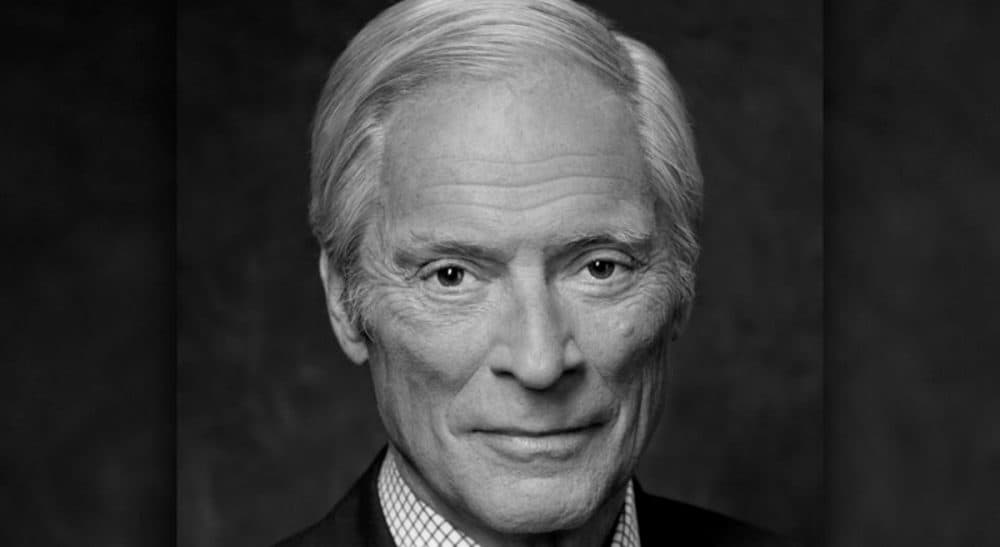Advertisement
Team Verses: How Bob Simon Kept The Tempo Of His Quartet

It was the tone the cameramen used that first spoke volumes about Bob Simon. “When is Bob coming?” they would ask in an excited but reverential voice. These men — and they were nearly all men — who had been to the ends of the earth and back with the CBS News correspondent, looked forward to Bob joining them on yet another adventure.
I was a generation behind them and certainly had not reported on Vietnam. I met Bob after landing in Saudi Arabia to cover my first war. Upon introduction in the CBS office of the Dharhan International Hotel, we did that awkward dance that producers and correspondents do, not yet knowing the other’s strengths or weaknesses, but eager to harmonize. Mainly, I didn’t want to misstep.
if Bob liked the idea, he told you. He used it. If he didn’t like the idea, he explained why not. Bob Simon knew how to cultivate a team.
The tension quickly dissipated as we began six months of churning out stories as Desert Shield turned to Desert Storm. We fed the news machine, and I began to see why the camera crews loved him, although such tough guys rarely admitted such strong emotions. When anyone offered an idea that Bob liked, he raised his eyebrows and nodded. Whether it was a sound recordist suggesting an interview question or a translator offering a new approach, if Bob liked the idea, he told you. He used it. If he didn’t like the idea, he explained why not. Bob Simon knew how to cultivate a team.
In the car, after shooting one story, I quoted a line from a T.S. Eliot poem. Bob finished the couplet. I looked at him and smiled. Then he quoted an entire poem. I recited a poem. After these dueling stanzas, I began to write for him. It is not unusual for producers to write news scripts; the work is so demanding that everyone pitches in to meet deadlines.
In Saudi Arabia, I would draft a script and Bob would "Simonize" it. He would cut a sentence in half, create a word image, or juxtapose two opposite words to reinforce the irony of the story. Because most network news stories are just two minutes long, he was always looking for a way to convey information artfully, but quickly, while winking to the audience.
On the few occasions when he got some downtime, Bob went to the hotel’s pool where he waded in the shallow end to ease his back pain while listening on a headset to poets reading their works on tape. He bathed in words. That winter, many quotes from William Butler Yeats floated into our stories.
But it was more than the study of poetry that made Simon’s scripts so memorable. I overheard the Tel Aviv bureau chief Michael Rosenbaum and Bob, who were great friends, trying to develop a secret formula. They said every script should contain a Biblical reference, an allusion to popular culture and a nod to the classics.
But it was more than the study of poetry that made Simon’s scripts so memorable ... every script should contain a Biblical reference, an allusion to popular culture and a nod to the classics.
After the air campaign began, in January 1991, I had written a story about the "firsts" of the war, including the first fighter jet to be shot down and the first pilot not to return. Bob was to finish the piece when he returned from the field where he had been working on a different story. The evening dragged on. Bob and his team never came back. They became the first network news crew to be taken prisoner in Iraq.
I didn’t work with Bob again until the spring of 1993 in Bosnia. By then I was a seasoned international producer, well aware of the danger that could befall a journalist in just the blink of an eye. I was trying to get his team into central Bosnia to cover a new round of fighting, but some journalists had been carjacked at gunpoint and their equipment stolen on one of the main routes. I spent hours trying to figure out a safer alternative, talking to aid workers and residents. When I described the situation to Bob, he looked at me with demanding brown eyes and asked, “what are the locals saying?” I showed him the improvised route. He and his team arrived unharmed.
Despite these war stories, I knew little else about Bob. His focus was always on the present, listening carefully, responding precisely, setting the tempo of our quartet. Or, as Bob might say, coaxing the falcon to hear the falconer.
